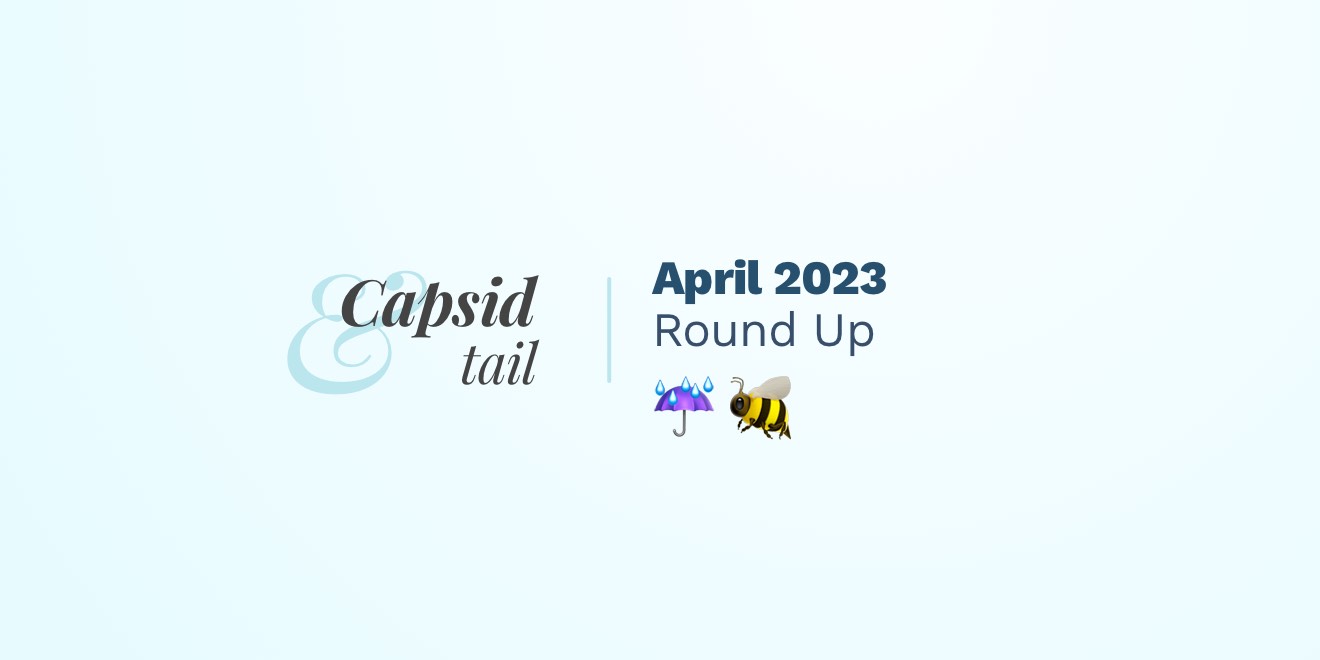We put out some good work in April! This month we’ve been neck deep in doing qPCR (Jess) and building lots of AI-powered tools for the lab (Jan and Jess). This month we’ve been thinking hard about the data-side of phages, as AI tools have all of a sudden become much friendlier to use and work with.
We also learned a new term this month: “humid lab”: a combination of “wet lab” and “dry lab” research. Basically it means scientists who know their way around the bench AND slinging code. Though I think I can help Jess get better at coding… I don’t think I’ll ever be good at stepping foot in the lab. I’ll probably spill stuff everywhere… and emphasizing the “wet” of wet lab.
The only thing that’s wet this month is Sydney’s weather (it’s cold and rainy again…), so we’ve been hacking away at our computers! Here’s what we wrote for April:
by Jessica Sacher
In this post, Jessica wraps up her series on doing qPCR for phage therapy (read part 1 here). In this followup, she explains how to interpret qPCR results when using it to quantify phages or bacteria in patient serum samples. She talks about the importance of analyzing standard and melt curves, how to look at negative controls, and how to think about Cq values. She wraps up the post by noting that qPCR can only detect DNA copies and can’t differentiate between living and dead phages or bacteria.
by Jan Zheng
This is a summary of Phage Australia’s official response, in the form of a white paper, to the UK Parliament’s Science and Technology Committee inquiry on the “antimicrobial potential” of using phages. The paper discusses the strengths of bacteriophages, including their specificity and continued activity in the face of antibiotic resistance, and the challenges, including uncertainty in applying phages in therapy, regulatory frameworks, and lack of IP protection. It also touches on regulatory clarity, the need for surveillance programs, a tiered approach to working cell banks, and GMP pathways to develop an economically viable model for phage therapy.
by Jessica Sacher
In this post, Jess talks about her journey (thanks to my constant prodding) from going from 0→1 in building a fully function chat bot for Capsid & Tail (which you can try out at our labspace.ai experiment). Jess talks about using a combination of tutorials and ChatGPT to overcome obstacles and errors and eventually write the code for a fully-functioning chat bot! She outlines every step it took to ask me, ChatGPT, and use online resources to learn coding and build cool projects. She makes the case that coding isn’t just for coders — and that anyone can build useful tools with the right resources and support!
C&T Throwback!
Now that we’re fully on the Generative AI bandwagon, we’re keen on reading up on anything related to phages, microbes, and bioinformatics data. I’m revisiting this article, “Illuminating one of biology’s biggest blind spots” by Kayla Young from Phase Genomics. In this article, Kayla tells us about building a comprenehsive phage-bacteria “interactome atlas” using something called proximity ligation-based metagenomic sequencing. Read our post or jump straight to their Nature paper: https://www.nature.com/articles/s41587-021-01130-z (Open access here: https://library.wur.nl/WebQuery/wurpubs/fulltext/562048)






